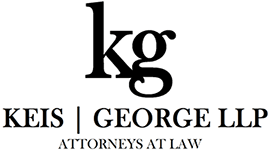An employee is injured on the job. [You] the carrier makes payments on a workers’ compensation claim the employee makes. Turns out, a third party was negligent and was the actual cause of the injury to the employee. Can you subrogate this claim? How is it different from any other subrogation claim you may have? The answer is you can and our firm handles Illinois workers’ compensation subrogation claims. However, while there are some differences in the law and the approach, we can still guide you through subrogation.
Illinois workers’ compensation laws
The Illinois workers’ compensation law is detailed in 820 ILCS 305. Specific to subrogation is section 305/5. There are two parts of that section that are of particular importance. One is the application of a lien on the injured employee in any personal injury action they bring against the at-fault party. If the employee and/or their representative are notified of a lien on any recovery, the carrier may recover from the proceeds of any settlement or judgment. The recovery is reduced by a twenty-five percent attorney fee for the insured’s representative and a pro-rata cost of any expenses. Second, there is a ninety-day rule that the carrier may not file a subrogation action, unless within ninety-days of the relevant statute of limitations the insured has not filed his or her own suit.
Send written notice of the lien
When a subrogation representative takes over the handling of the file, they should immediately send written notice of their lien to the insured and their attorney if one is identified. This will protect the company should the employee engage in a settlement with the tortfeasors carrier. If within ninety days of the statute there has not been an action filed by the employee against the tortfeasor, then a subrogation action should be filed. While a complaint may yet be filed by the employee, this will protect against the statute.
Recovery of a workers’ compensation subrogation claim
In terms of review and recovery of an Illinois workers’ compensation subrogation claim, the claim file should be retained in order to protect against claims of spoliation. Evaluating these claims may be tricky. Injuries and payments will be based on a case that your company had been defending against. These may include independent medical examinations and billing review that may have been used to reduce the payments on the claim. Such review can make a full recovery of the amounts paid more difficult. Further evaluation issues arise with construction accidents, the source of many workers’ compensation claims. Identifying the proper contractors, subcontractors, and insurance is of the utmost importance.
Illinois subrogation
For the best handling of a subrogation claim in Illinois, counsel will make sure the steps are handled correctly. The attorney can ensure that notice of the lien is proper and if suit is required to file the complaint. If there are settlement negotiations, the lawyer can assist in evaluating and negotiating to ensure the best possible outcome for your company. While the two main issues are detailed above, there are other complexities that can be pitfalls for these claims, such as when the insured employer is named as a Third-Party Defendant to the employee’s personal injury action. While these workers’ compensation claims can be a bit different from your run-of-the-mill file, there is potential for good recovery when handled correctly.
Illinois workers’ compensation subrogation
Keis George employs a unique approach to Illinois workers’ compensation subrogation, working directly with claims professionals to identify third-party responsibility and pursue recovery through complex litigation. For any questions with your workers’ compensation claims in Illinois, contact one of our subrogation lawyers to schedule a consultation.
